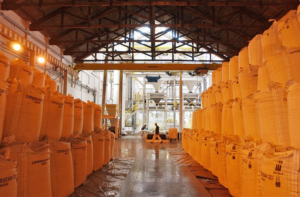Caribbean must prioritise renewable energy
LATIN AMERICA AND THE CARIBBEAN MUST TRANSITION QUICKLY to renewable energy, said industry experts who met recently in Santiago, Chile.
Specialists at the two-day ‘High-level Expert Workshop for the Special Report on Latin America of the IEA’s World Energy Outlook 2023’ met to cull information on the region’s energy-related needs and opportunities to compile a special report, the ‘WEO-2023 Latin America outlook’.
The findings will be published in the next edition of the annual report prepared by the International Energy Agency (IEA).
Apart from prioritising renewable energy, last week’s Chile meeting also encouraged LATAM and Caribbean nations to emphasise access to energy and energy efficiency, among other measures, according to the authorities and experts gathered last week at the Economic Commission for Latin America and the Caribbean (ECLAC) Chile headquarters.

The workshop was inaugurated by ECLAC’s Executive Secretary, José Manuel Salazar-Xirinachs, as the gathering’s host, who indicated that energy transition not only constitutes an alternative for supporting access, energy security, and environmental sustainability but also serves as a driver of productive transformation and of the development pattern in the region.
“The current situation of cascading crises and their effects on Latin America – including increased poverty, a new lost decade in terms of economic growth, high inflation, and fiscal restrictions – have exposed the fragility and vulnerability of countries’ energy systems, with negative impacts on energy security, equality, and sustainability. These crises have especially affected households in the most vulnerable quintiles, worsening the poverty and inequality situation,” Salazar-Xirinachs said.
He recalled despite progress on electricity coverage in the region (which reaches 97 percent of the population), there are still 16 million people without access to this vital service and 77 million who do not have access to clean cooking systems.
This is compounded by the fragility of countries that depend on imports of fossil fuels (natural gas and oil), which reveals the low level of diversification and renewability in their energy matrix.
“All of this keeps us far from fulfilling Sustainable Development Goal 7 (“Ensure access to affordable, reliable, sustainable and modern energy for all”), with the progress that is insufficient or very slow for achieving the targets on the share of renewable sources and energy efficiency in the region as a whole,” the ECLAC official lamented.
“We must redouble work and efforts for accelerating national energy transition processes based on renewables. Even more so when raw materials and human capabilities are widely available in the region and can be harnessed in a sustained way. I am referring to wind, water, the sun, critical minerals, as well as the engineering capabilities and work that add value along the entire production chain,” Salazar-Xirinachs emphasized.
ECLAC refers to the energy transition as a process of sustainable transformation of the energy system that requires a new ecosystem of governance, targeted investment, and modern regulatory frameworks, along with the adaptation of institutions and public policies.
The UN regional organisation proposes five pillars of simultaneous action:
1) Increase renewable energy in the energy matrix;
2) Universalise access to electricity based on renewables and reduce energy poverty;
3) Increase energy efficiency in all sectors;
4) Strengthen regional complementarity, integration, and interconnection; and
5) Boost energy security and resilience in the face of external shocks.
“In this very complex energy context for the region, resulting from the war in Ukraine, it is vital to carry out an exhaustive and detailed analysis that would enable exploring energy-related opportunities and challenges in each country, along with the progress made and actions taken in Latin American and Caribbean countries in terms of energy efficiency, clean transportation, sustainable cities and renewable energy, aimed at achieving a fair, sustainable and inclusive energy transition that would truly contribute to the goals of decarbonising the economy, in line with Paris 2015,” ECLAC’s Salazar-Xirinachs said.









